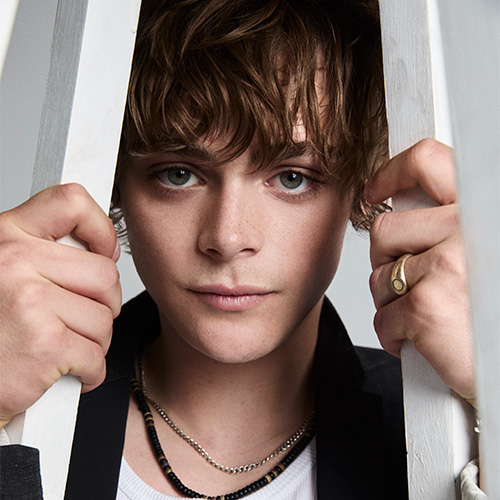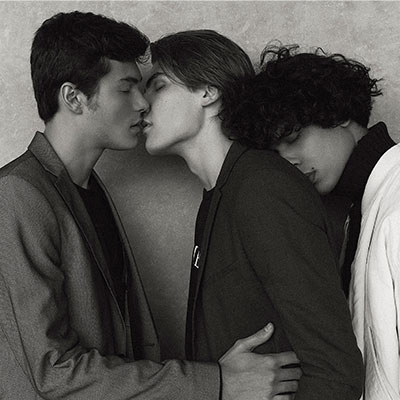In a recent controversy that has shaken the Brazilian fashion and LGBTQ+ communities, trans influencer Maya Massafera accused Vogue Brasil of exploiting her image under false pretences. Maya’s frustration and feelings of betrayal have sparked a broader conversation about the authenticity of corporate support for Pride Month and the representation of trans individuals in mainstream media. This blog post aims to delve into the incident, reflecting on Maya’s perspective and the implications it holds for the broader discussion on trans visibility and respect in media.
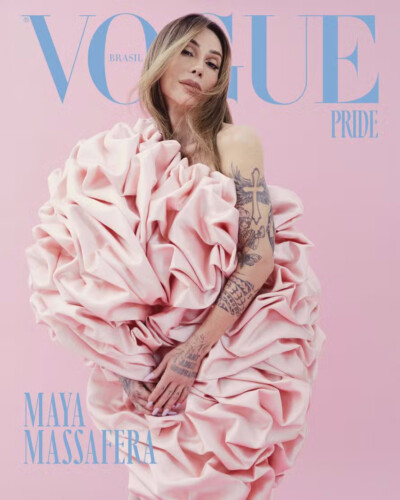
Maya Massafera (Reproduction/Instagram/Vogue)
The Inciden
Maya Massafera, an influential social media personality in Brazil who has recently transitioned , took to her Instagram to express her disappointment and anger towards Vogue Brasil. She claimed that the magazine had promised her the cover of its June print edition, a significant milestone that she believed would elevate her visibility and message. However, to her surprise, the images were instead used for a digital feature, which she perceives as less prestigious and impactful.
Maya felt deeply wronged by this decision, stating, “Being deceived is the worst feeling, right? A stab in the back. What was supposed to be a dream turned into deception and lies to use my image and my cause in the month of diversity. Today I only cried because of the disrespect towards me, Maya, and towards me, a trans woman.”
Vogue Brasil’s Response
In response to Maya’s accusations, Vogue Brasil released a statement on Instagram, expressing regret over the misunderstanding. The magazine denied ever promising Maya a print cover, emphasizing that the project had undergone extensive negotiation and that they were proud of the digital feature produced. They expressed disappointment that the issue had overshadowed the core message of diversity and inclusion that the feature was meant to celebrate.
Maya’s Perspective
Maya’s public outcry reflects a deeper issue within the representation of trans individuals in mainstream media. Her disappointment is not just about the medium of publication but about the perceived lack of respect and sincerity from a major media outlet. Maya compared her situation to how other high-profile cisgender celebrities, such as Bruna Marquezine and Gisele Bündchen, are treated by the magazine, highlighting a disparity in how different identities are valued and represented.
Trans Representation in Media
Maya’s experience sheds light on the broader issue of how trans people are represented in media. Often, the inclusion of trans individuals in major publications can appear tokenistic, aimed more at ticking diversity boxes rather than genuinely amplifying their voices. The fact that Maya’s images were relegated to a digital feature, rather than the print cover, raises questions about the sincerity of Vogue Brasil’s commitment to trans visibility and equality.
The Importance of Genuine Representation
For trans individuals, especially those in the public eye, genuine representation goes beyond mere visibility. It involves being treated with the same respect and consideration as their cisgender counterparts. When promises are made and then not fulfilled, it not only hurts the individual but also sends a damaging message to the broader community that their stories and identities are not valued equally.
Corporate Responsibility During Pride Month
This incident also brings into question the motivations behind corporate support for Pride Month. While many companies and brands publicly support LGBTQ+ rights during June, these gestures often come under scrutiny for being performative rather than substantive. Maya’s experience with Vogue Brasil underscores the need for corporations to ensure that their actions align with their stated commitments to diversity and inclusion.
The dispute between Maya Massafera and Vogue Brasil highlights the ongoing challenges faced by trans individuals in gaining authentic and respectful representation in mainstream media. It serves as a reminder that genuine inclusion involves more than just featuring diverse faces; it requires honoring commitments, valuing all identities equally, and ensuring that actions match words. As we continue to celebrate Pride Month, it is crucial to hold corporations accountable and to strive for a media landscape that truly respects and uplifts the voices of all individuals, regardless of their gender identity.
Maya’s courage in speaking out against what she perceives as an injustice serves as an important reminder of the power of visibility and the need for continued advocacy. Her story is not just about a single magazine cover; it is about the broader struggle for equality, respect, and genuine representation for trans individuals everywhere. As we reflect on her experience, let us commit to supporting and amplifying trans voices, ensuring that their stories are told with the dignity and respect they deserve.
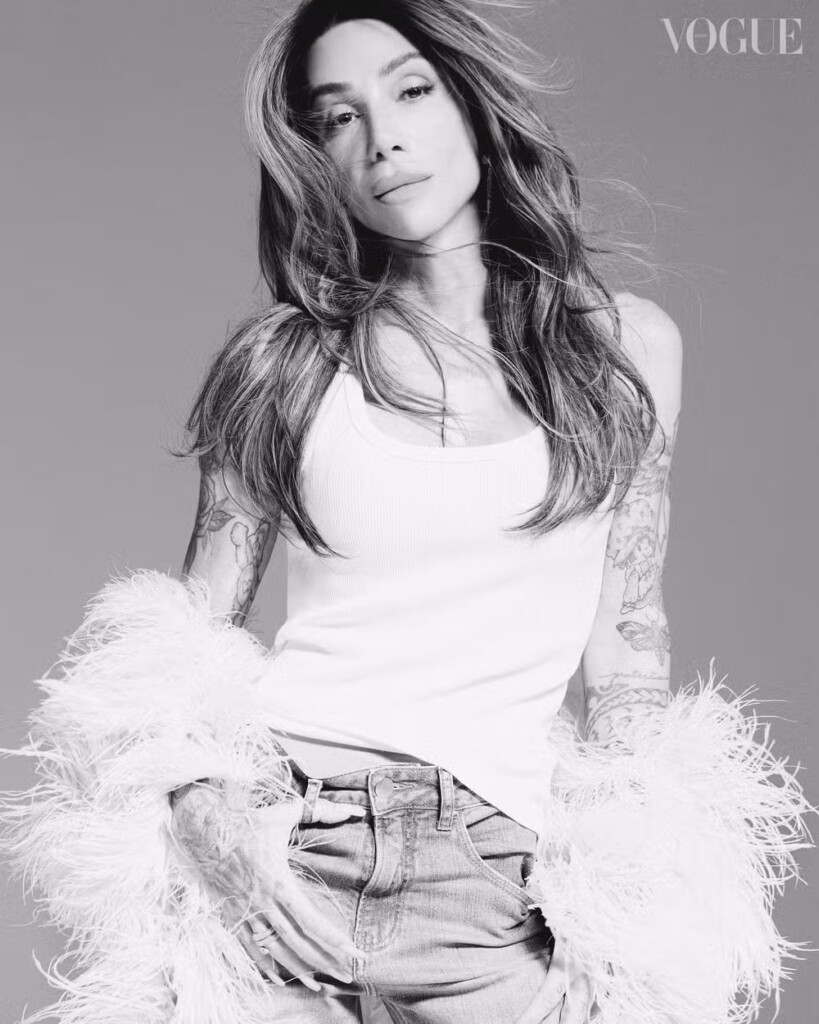
Maya Massafera (Reproduction/Instagram/Vogue)

Maya Massafera (Reproduction/Instagram/Vogue)
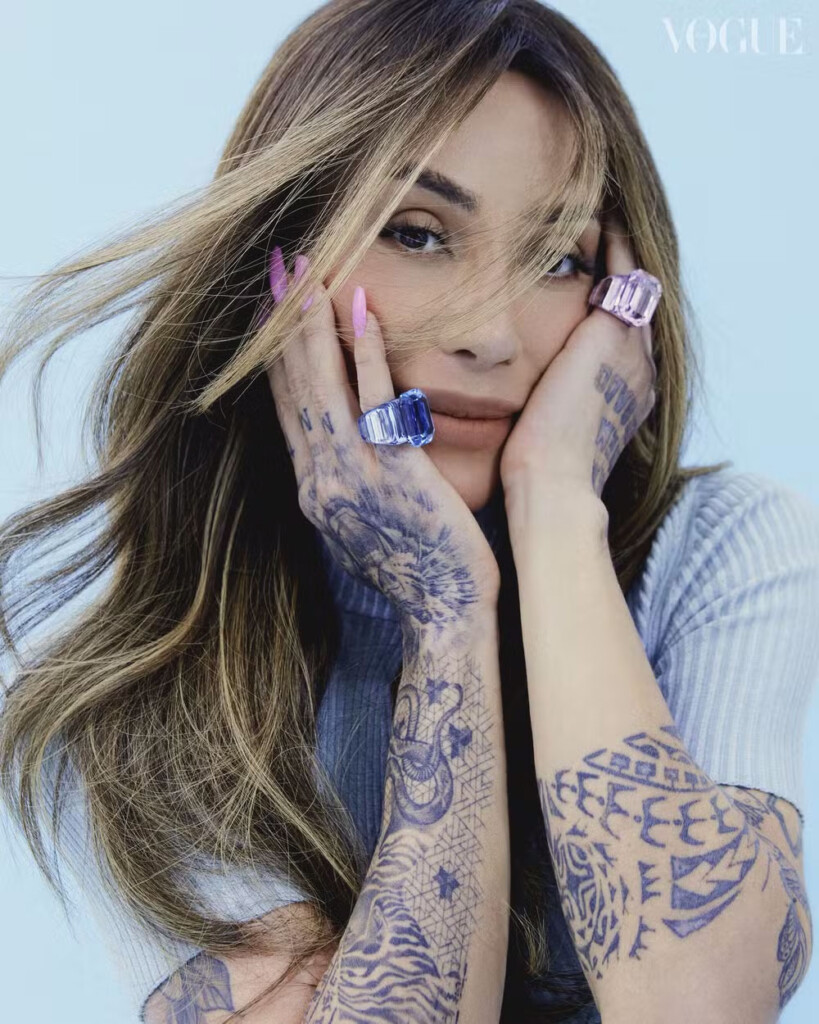
Maya Massafera (Reproduction/Instagram/Vogue)
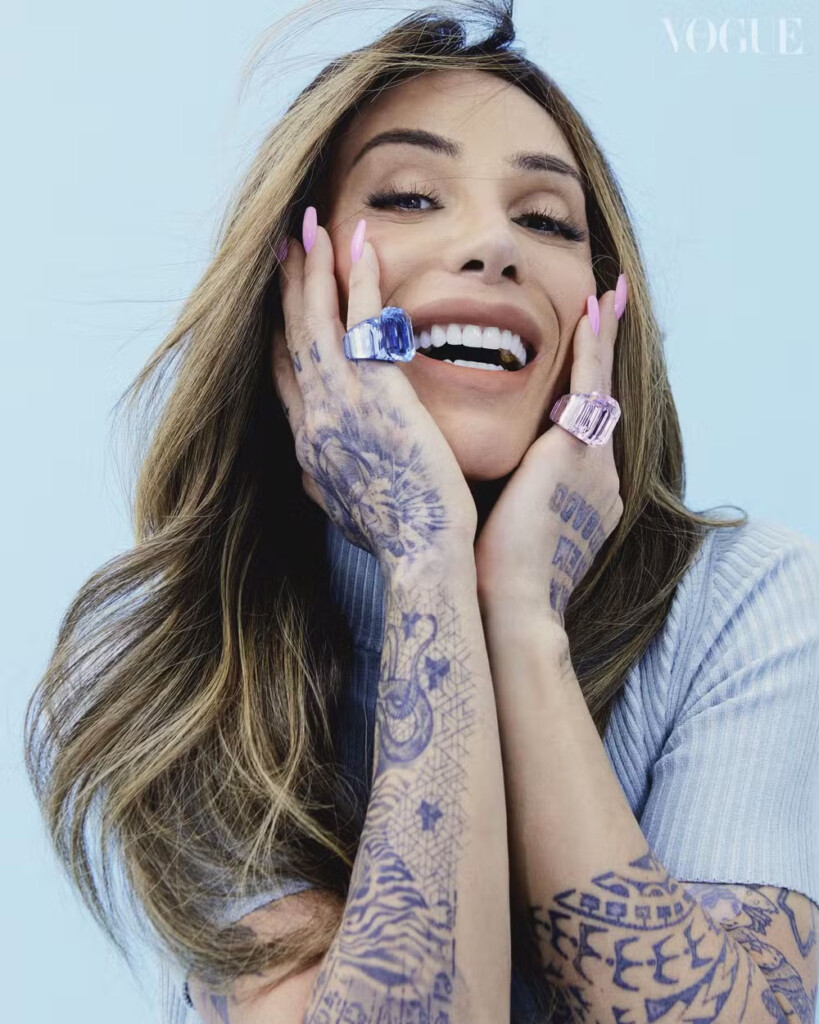
Maya Massafera (Reproduction/Instagram/Vogue)
Highlighting Daniela Marques’ Comment on Maya Massafera and Trans Representation
In the midst of the controversy, trans woman artist Daniela Marques, known as @danicmarx, provided a noteworthy perspective. She expressed admiration for Vogue Brasil’s inclusion of trans individuals but voiced that Maya Massafera doesn’t yet represent the broader trans community as a symbol of struggle, voice, or reference. Marques emphasised the need for genuine representation over trends, highlighting that many other trans individuals significantly contribute to the community and should be recognized for their efforts.
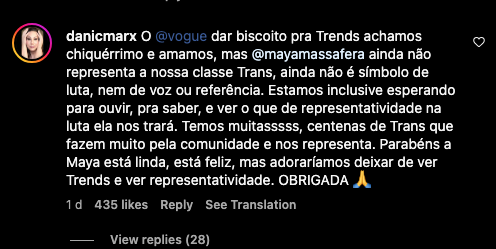
Comment by Daniela Marques:
“O @vogue dar biscoito pra Trends achamos chiquérrimo e amamos, mas @mayamassafera ainda não representa a nossa classe Trans, ainda não é símbolo de luta, nem de voz ou referência. Estamos inclusive esperando para ouvir, pra saber, e ver o que de representatividade na luta ela nos trará. Temos muitasssss, centenas de Trans que fazem muito pela comunidade e nos representa. Parabéns a Maya está linda, está feliz, mas adoraríamos deixar de ver Trends e ver representatividade. OBRIGADA.”
Translation:
“We think it’s chic and love that Vogue is giving attention to trends, but Maya Massafera still doesn’t represent our Trans class, she’s not yet a symbol of struggle, voice, or reference. We are waiting to hear, to know, and see what kind of representation in the struggle she will bring. We have many, hundreds of Trans people who do a lot for the community and represent us. Congratulations to Maya, she looks beautiful and is happy, but we would love to stop seeing trends and see real representation. Thank you.”
View this post on Instagram
Photography: @caiaramalho
Art Direction: @juliakoala
Styling: @yanacioli
Beauty: @henriquem85
Executive Producer: @flaviafraccaroli
Photography Assistant: @alephloureiro e @victor_cazuza
Styling Assistant: @malucatelli
Beauty Assistant: @juliocardim_beauty
Fashion Producer: @jonathasaid
Nails: Camila Barbosa
Retouching: @philipemortosa
Special Thanks: @differ_11.11







